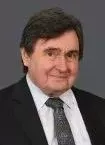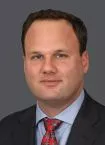Certain Principal Trading Firms, Private Funds, Investment Advisers and Other Market Participants May Become Subject to Registration
On February 5, 2024, the U.S. Securities and Exchange Commission ("SEC") adopted new rules – SEC Rules 3a5-4 and 3a44-2 (collectively, the "Final Rules") – to further define the phrase "as part of a regular business" used in the statutory definitions of "dealer" and "government securities dealer" in Sections 3(a)(5) and 3(a)(44) of the Securities Exchange Act of 1934 (the "Exchange Act"), respectively. 1 The Final Rules set forth two qualitative factors that subject market participants taking on significant liquidity-providing roles, which the SEC construes to be de facto market makers, to registration under the Exchange Act as dealers or government securities dealers. The Final Rules apply to the buying and selling of any "security" or "government security," as such terms are defined in Sections 3(a)(10) and 3(a)(42) of the Exchange Act, respectively, including crypto assets that are securities or government securities. The Final Rules will become effective 60 days after their publication in the Federal Register. The compliance date for the Final Rules will be one year after their effective date.
The SEC expects that certain market participants will be dealers or government securities dealers under the Final Rules, including principal trading firms ("PTFs"), private funds (including hedge funds), investment advisers, and crypto asset-related entities. Their status as such is significant for these parties because, absent an exception or exemption, a dealer or government securities dealer must: (i) register as such with the SEC pursuant to Section 15(b) or Section 15C(a) of the Exchange Act; (ii) become a member of a self-regulatory organization ("SRO") (generally, the Financial Industry Regulatory Authority, Inc. ("FINRA")); and (iii) comply with the federal securities laws and rules thereunder, SRO rules and, for government securities dealers, U.S. Department of the Treasury ("Treasury Department") rules.
In this Legal Update, we provide an overview of the Final Rules and certain key SEC guidance in the Adopting Release.
Background
Section 3(a)(5)(A) of the Exchange Act generally defines the term "dealer" as any person engaged in the business of buying and selling securities for such person's own account through a broker or otherwise, but excludes a person that buys or sells securities for such person's own account, either individually or in a fiduciary capacity, but not as a part of a regular business. This statutory exclusion from the dealer definition is often referred to as the "trader" exception or the "dealer/trader distinction." Section 3(a)(44) of the Exchange Act establishes a nearly identical definition of the term "government securities dealer" for activities in government securities.
The Exchange Act does not define what it means to be engaged in a "regular business," but courts and the SEC have historically assessed the frequency and nature of the trading activity to determine whether a person is engaged in the business of buying and selling securities for its own account as part of a regular business. Certain factors, such as acting as a market maker, de facto market maker or liquidity provider, distinguish between traders and securities dealers engaged in a regular business of buying or selling securities for their own account.
The Final Rules establish two quantitative factors for identification of the market participants the SEC believes are conducting a regular business in securities trading that should be subject to Exchange Act registration and regulation. Unless an exception or exemption from registration is available, a person engaged in the activities identified in the Final Rules must register as a dealer or government securities dealer under the Exchange Act and become subject to broker-dealer regulatory obligations and supervisory oversight.
Final Rules
OVERVIEW
The Final Rules provide that a person engaged in buying and selling securities or government securities for its own account is engaged in such activity as part of a regular business if it engages in a regular pattern of buying and selling securities or government securities that has the effect of providing liquidity to other market participants by:
- egularly expressing trading interest that is at or near the best available prices on both sides of the market for the same security and that is communicated and represented in a way that makes it accessible to other market participants (the "Expressing Trading Interest Factor"); or
- Earning revenue primarily from capturing bid-ask spreads, by buying at the bid and selling at the offer, or from capturing any incentives offered by trading venues to liquidity-supplying trading interests (the "Primary Revenue Factor").
The term "own account" means an account: (i) held in the name of that person; or (ii) held for the benefit of that person. Thus, for example, the trading interest expressed by an investment adviser when placing orders or requesting quotations on behalf of its clients should not be activity captured by the Expressing Trading Interest Factor, unless the investment adviser itself is the account holder or the account is held for the benefit of the investment adviser. In this regard, the SEC did not specifically address whether an advisory account in which an investment adviser has an interest, such as an interest in a fund advised by the investment adviser, could be deemed the adviser's "own account" for purposes of the Final Rules.
Expressing Trading Interest Factor
The Expressing Trading Interest Factor is intended to capture what the SEC views as de facto market making activities, as in the case of market participants employing automated, algorithmic trading strategies that rely on high frequency trading strategies to generate a large volume of orders and transactions (including passive market making strategies involving the submission of non-marketable resting orders that provide liquidity to the marketplace at specified prices).
The term "regularly" applies to a person's expression of trading interest both within a trading day and over time. The term is intended to exclude persons engaging in isolated or sporadic expressions of trading interest. Continuous expressions of trading interest are not necessary to come within the term. Whether a person's activity is "regular" will depend on the liquidity and depth of the relevant market for the security.2 A market participant must assess the totality of its trading activity to determine if it is expressing trading interests on both sides of the market for the same security sufficiently close in time to have the effect of providing liquidity in that security to other market participants.
"Trading interest" means: (i) an "order" as defined in SEC Rule 3b-16(c) (that is, any firm indication of a willingness to buy or sell a security, as principal or agent, including any bid or offer quotation, market order, limit order, or other priced order); or (ii) any non-firm indication of a willingness to buy or sell a security that identifies the security and at least one of the following: quantity, direction (buy or sell), or price. The term is intended to account for the varied mechanisms that permit market participants to effectively make markets, including, for example, streaming quotes, request for quotes, or order books. In contrast, a market participant seeking pricing information by requesting quotes on a security (without including prices) on both sides of the market would generally not be subject to the Expressing Trading Interest Factor because that trading interest, absent more, would not be "at or near the best available price."
Primary Revenue Factor
The Primary Revenue Factor is intended to capture market participants engaging in purchase and sale transactions in a manner designed to earn revenue primarily from bid-ask spreads or liquidity incentives offered by trading venues, rather than with a view toward appreciation in value. The Primary Revenue Factor may apply to a person's trading strategies regardless of whether such strategies are profitable.
The Final Rules do not provide a bright-line test for determining whether revenue is made up "primarily" from capturing bid-ask spreads or liquidity incentives, or a combination of the two. However, in the SEC's view, a person deriving the majority of its revenue from either of those sources would likely be a dealer or government securities dealer under the Exchange Act. In this connection, persons, including investment advisers or private funds, employing portfolio management strategies and trading strategies that exploit pricing differentials in bid-ask spreads may come within the scope of the Final Rules.
The Primary Revenue Factor would only apply with respect to liquidity-providing dealer activity on a "trading venue" – a term that is intended to cover evolving locations for securities trading. Liquidity-providing dealer activity can be found on a national securities exchange, an alternative trading system, any other broker- or dealer-operated platform for executing trading interest internally by trading as principal or crossing orders as agent, or any other platform performing a similar function. Whether a particular platform, structure or activity involves a "trading venue" for purposes of the Final Rules is a facts and circumstances determination.
EXCLUSIONS
The Final Rules provide an exclusion for each of the following:
- A person that has or controls total assets of less than $50 million;
- An investment company registered under the Investment Company Act of 1940; or
- A central bank,3 sovereign entity4 or international financial institution.5
Importantly, the Final Rules do not define the terms "dealer" and "government securities dealer," or establish exclusions therefrom, for all purposes. As expressly set forth in the Final Rules, no presumption arises that a person is not a dealer or government securities dealer under the Exchange Act because it is not covered by SEC Rules 3a5-4 or 3a44-2. Existing judicial precedent and SEC interpretations will continue to apply. To illustrate, a securities underwriter with assets below $50 million could still be required to register as a dealer under the Exchange Act, notwithstanding the total assets-based exclusion in the Final Rules.
The SEC has directed the staff of the Division of Trading and Markets to review its no-action letters and other staff statements addressing the definitions of "dealer" and "government securities dealer" to determine whether they should be modified or withdrawn.
ANTI-EVASION PROVISIONS
The Final Rules prohibit a person from evading the Exchange Act's registration requirements for dealers and government securities dealers by: (i) engaging in activities indirectly that would satisfy the Final Rules' qualitative factors; or (ii) disaggregating accounts. Potentially evasive activity includes: (i) coordinating and integrating trading activity across commonly controlled groups of legal entities such that it would not meet the qualitative factors; (ii) using two legal entities to purchase and sell securities; or (iii) using several legal entities to purchase and sell securities, but rotating such activity across or among the entities in a way that none of the entities trades frequently enough to satisfy the "regular" test under either factor. The SEC states that, in assessing possible violations, it may consider whether there are information barriers to prevent sharing of information or sufficiently segregated trading or overlapping personnel across accounts or entities, among other factors.
COMPONENTS OF THE ORIGINAL PROPOSAL THAT WERE NOT INCLUDED IN THE FINAL RULES
Notably, the Final Rules do not include several components of the Proposal, including:
- A bright-line quantitative standard under which a person engaging in specified levels of trading activity in U.S. Treasury securities, as described in Section 3(a)(42)(A) of the Exchange Act, would have been deemed to be buying and selling such securities as a regular business, regardless of whether such person met any of the qualitative factors.
- A qualitative standard that would have covered a person routinely making roughly comparable purchases and sales of the same or substantially similar securities or government securities in a day; and
- Aggregation provisions (including expansive definitions of the terms "own account" and "control") that were designed to cover trading activity within a corporate family in which trading activity at a firm or legal-entity level is employed on behalf of or for the benefit of another legal entity.
Conclusion
The Final Rules expand the scope of market participants subject to dealer and government securities dealer registration requirements under the Exchange Act. While the SEC primarily expects PTFs and certain private funds/hedge funds to be required to register, investment advisers and other market participants may also become subject to registration as dealers or government securities dealers, or both. As stated above, status as a dealer or government securities dealer is significant for these parties because they generally must register with the SEC, become a member of FINRA or other SRO(s), and comply with the federal securities laws and rules thereunder, SRO rules and, for government securities dealers, Treasury Department rules. In this regard, comprehensive regulatory provisions apply to registered firms, including financial responsibility/net capital rules (which, among other things, impose restrictions on capital withdrawals and limitations on leverage), books and records, reporting and disclosure (including financial reporting), and personnel licensing and registration requirements. Registered firms also are subject to the examination and enforcement authority of the SEC, FINRA or other SROs.
Market participants should carefully consider the qualitative factors set forth in the Final Rules to assess whether they are subject to registration as a dealer or government securities dealer under the Exchange Act. As a practical matter, covered market participants will be faced with the choice of alteration of their current securities trading, reorganization of their business operations or registration under the Exchange Act. However, the Adopting Release provides little guidance regarding the practical implications of the Final Rules for PTFs, private funds, investment advisers and market participants transacting in crypto asset securities (including with respect to so-called DeFi market products, structures, and activities, such as decentralized exchange (or "DEX") and automated market maker activities).
The Final Rules' one-year compliance period may present challenges to covered market participants to register with the SEC and become a member of FINRA. In addition to the time needed to set up the broker-dealer's operational structure and prepare the FINRA application, firms need to be mindful that FINRA generally has 180 days to review and issue a decision after the filing of a New Member Application and may issue a fast-track decision within 100 days, although FINRA intends to implement an expedited membership application process for market participants covered by the Final Rules.
Footnotes
1. Further Definition of "As a Part of a Regular Business" in the Definition of Dealer and Government Securities Dealer in Connection with Certain Liquidity Providers, Exchange Act Release No. 99477 (Feb. 5, 2024) (the "Adopting Release"), available at https://www.sec.gov/files/rules/final/2024/34-99477.pdf. Commissioners Peirce and Uyeda opposed adoption of the Final Rules. The SEC proposed Rules 3a5-4 and 3a44-2 in March 2022 (the "Proposal"), as discussed in our Legal Update available here.
2. For markets with significant liquidity and market depth, such as the U.S. Treasury market, expressing trading interest on both sides of the market for the same security as part of an investment strategy on a one-off basis would not be sufficiently regular to come within the scope of the Expressing Trading Interest Factor. The SEC would expect more frequent periods of expressing trading interest on both sides of the market (both intraday and across days) to trigger this qualitative factor. On the other hand, if the market for a security is less liquid, and it is harder to execute orders in that security or large orders can dramatically affect the security's price, the term "regular" would account for the possibility of more interruptions or wider spreads for the best available prices.
3. SEC Rules 3a5-4(b)(3) and 3a44-2(b)(3) define the term "central bank" to mean a reserve bank or monetary authority of a central government (including the Board of Governors of the Federal Reserve System or any of the Federal Reserve Banks) and the Bank for International Settlements.
4. SEC Rules 3a5-4(b)(4) and 3a44-2(b)(4) define the term "international financial institution" to mean the African Development Bank; African Development Fund; Asian Development Bank; Banco Centroamericano de Integración Económica; Bank for Economic Cooperation and Development in the Middle East and North Africa; Caribbean Development Bank; Corporación Andina de Fomento; Council of Europe Development Bank; European Bank for Reconstruction and Development; European Investment Bank; European Investment Fund; European Stability Mechanism; Inter-American Development Bank; Inter-American Investment Corporation; International Bank for Reconstruction and Development; International Development Association; International Finance Corporation; International Monetary Fund; Islamic Development Bank; Multilateral Investment Guarantee Agency; Nordic Investment Bank; North American Development Bank; and any other entity that provides financing for national or regional development in which the U.S. Government is a shareholder or contributing member.
5. SEC Rules 3a5-4(b)(5) and 3a44-2(b)(5) define the term "sovereign entity" to mean a central government (including the U.S. Government), or an agency, department, or ministry of a central government.
Visit us at mayerbrown.com
Mayer Brown is a global services provider comprising associated legal practices that are separate entities, including Mayer Brown LLP (Illinois, USA), Mayer Brown International LLP (England & Wales), Mayer Brown (a Hong Kong partnership) and Tauil & Chequer Advogados (a Brazilian law partnership) and non-legal service providers, which provide consultancy services (collectively, the "Mayer Brown Practices"). The Mayer Brown Practices are established in various jurisdictions and may be a legal person or a partnership. PK Wong & Nair LLC ("PKWN") is the constituent Singapore law practice of our licensed joint law venture in Singapore, Mayer Brown PK Wong & Nair Pte. Ltd. Details of the individual Mayer Brown Practices and PKWN can be found in the Legal Notices section of our website. "Mayer Brown" and the Mayer Brown logo are the trademarks of Mayer Brown.
© Copyright 2024. The Mayer Brown Practices. All rights reserved.
This Mayer Brown article provides information and comments on legal issues and developments of interest. The foregoing is not a comprehensive treatment of the subject matter covered and is not intended to provide legal advice. Readers should seek specific legal advice before taking any action with respect to the matters discussed herein.




